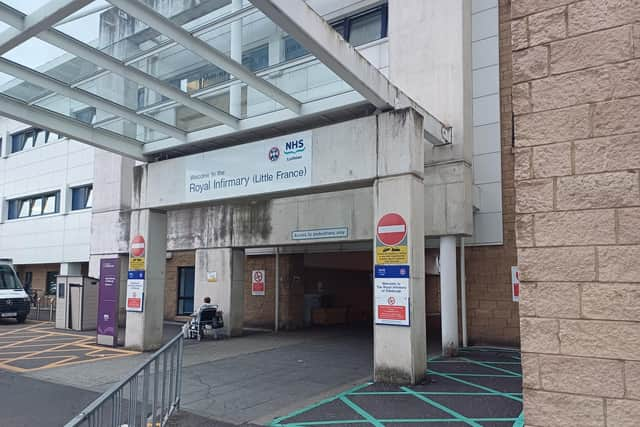NHS Lothian vows to 'make amends' as its revealed Edinburgh hospital profited £40m from slave plantation
and live on Freeview channel 276
NHS Lothian have pledged to ‘make amends’ for historical links with slavery, after it was revealed the city’s biggest hospital was funded for decades by exploited labour on an estate it owned in the Caribbean.
Damning new research has revealed that the health board profited by almost £40 million from slavery, including through ownership of a slave plantation in Jamaica, left to it in a surgeon's will in 1750. A report found that, in today’s money, an estimated £39.1m was provided to the Royal Infirmary of Edinburgh from its ownership of the Red Hill pen estate and the enslaved people of African descent who worked there – for longer than the NHS has existed. Cash was also raised through donations from people with connections to slavery.
Advertisement
Hide AdAdvertisement
Hide AdHealth chiefs have now said they will launch a reparations programme to atone for it’s links to slavery, based on eight recommendations provided by an independent advisory group following a two-year research project.


Calum Campbell, Chief Executive of NHS Lothian, said: “This important work was carried out to help give us a greater understanding of the history that has shaped our society and institutions. Tackling racism helps us reduce health inequalities and improve outcomes for our diverse population and ensures a better experience for everyone who works with and for us. This work is vital to delivering this ambition. We have a duty to use this understanding to take action that will create meaningful change.
“We will now begin work to plan how we will implement the recommendations to ensure they have an impact. The timing of this research is particularly important as we, in NHS Lothian, recognise Black History Month to share, celebrate and understand the impact of black heritage and culture. It is an opportunity for Black and Minority Ethnic staff and their allies to share their experiences and to collaboratively bring change to the organisation. It also provides us with a further opportunity to reflect on the past, as well as look forward and opens up conversations about how we tackle racism, rising health inequalities and modern slavery.”
The research found that The Royal Infirmary of Edinburgh owned an estate in Jamaica called Red Hill pen for 143 years and for almost 90 of those years, the exploited labour provided considerable wealth for the Infirmary. The small estate in St-Thomas-in-the-East in Jamaica and 39 enslaved people of African descent came into the ownership of the Royal Infirmary of Edinburgh through the will of a Scottish surgeon in Jamaica, Dr Archibald Kerr in 1750.
Advertisement
Hide AdAdvertisement
Hide AdWith the money from the estate, the hospital bought medicines, constructed a new building, employed staff, and healed Edinburgh’s ‘sick poor’. After slavery was abolished, the hospital received money from the UK Government as ‘compensation’ for the loss of labour.
While NHS Lothian said it “cannot provide any traditional financial reparation”, it has agreed to raise awareness, provide education and ‘forge new relationships’. Among recommendations in the report accepted by the board, NHS Lothian was urged to publish an apology and create an Implementation Group to deliver anti-racist interventions to tackle current racial inequalities in employment and health.
It is also proposed that commemorative works should be commissioned, via the NHS Lothian Charity, a review of its current arts and culture activity be carried out and work to share the findings of the research.
The health board has been urged to explore partnerships with organisations in Jamaica and West Africa and undertake further research into the health board’s connections with slavery. Finally, NHS Lothian should also encourage research partnerships on the impact of slavery on British medicine and healthcare systems. NHS Lothian said work is now underway to develop a work programme based on the recommendations.
Comment Guidelines
National World encourages reader discussion on our stories. User feedback, insights and back-and-forth exchanges add a rich layer of context to reporting. Please review our Community Guidelines before commenting.